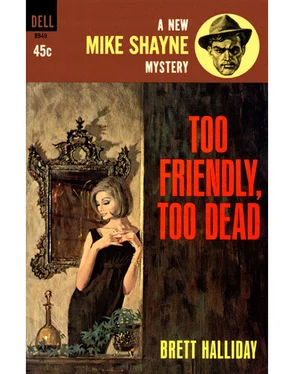Dan Fesperman - The Double Game
Здесь есть возможность читать онлайн «Dan Fesperman - The Double Game» весь текст электронной книги совершенно бесплатно (целиком полную версию без сокращений). В некоторых случаях можно слушать аудио, скачать через торрент в формате fb2 и присутствует краткое содержание. Жанр: Шпионский детектив, на английском языке. Описание произведения, (предисловие) а так же отзывы посетителей доступны на портале библиотеки ЛибКат.
- Название:The Double Game
- Автор:
- Жанр:
- Год:неизвестен
- ISBN:нет данных
- Рейтинг книги:3 / 5. Голосов: 1
-
Избранное:Добавить в избранное
- Отзывы:
-
Ваша оценка:
- 60
- 1
- 2
- 3
- 4
- 5
The Double Game: краткое содержание, описание и аннотация
Предлагаем к чтению аннотацию, описание, краткое содержание или предисловие (зависит от того, что написал сам автор книги «The Double Game»). Если вы не нашли необходимую информацию о книге — напишите в комментариях, мы постараемся отыскать её.
The Double Game — читать онлайн бесплатно полную книгу (весь текст) целиком
Ниже представлен текст книги, разбитый по страницам. Система сохранения места последней прочитанной страницы, позволяет с удобством читать онлайн бесплатно книгу «The Double Game», без необходимости каждый раз заново искать на чём Вы остановились. Поставьте закладку, и сможете в любой момент перейти на страницу, на которой закончили чтение.
Интервал:
Закладка:
“Where would you like to begin?” I asked nervously, feeling like a sycophantic fool.
“Wherever you’d like.” He sounded as though he meant it. “We don’t even have to talk about the new book unless you want to, although my publisher would probably send me to the gallows for saying so.”
His relaxed manner immediately put me at ease, and for the next two hours I enjoyed that rarest of pleasures-a much-anticipated event that exceeds expectations. His answers were witty and expansive, candid and unrehearsed. And although he continued to downplay his career with the CIA-seeming almost sheepish on the topic-in other areas he revealed details I had never seen elsewhere. He even described the exact moment he had dreamed up his greatest creation, frumpy spymaster Richard Folly, who had come to him out of the blue in 1967 as he rode a heaving tram car in Budapest, where I had actually been living at the time. Folly, a perennial loser in love and in office politics, had been the most sympathetic literary companion of my adolescence, and I’d always felt redeemed when he ultimately triumphed on the strength of his nimble, analytical mind.
But the best thing about the interview was that Lemaster spoke just the way he wrote-in complete and flawless paragraphs, rarely hesitating and never doubling back. I couldn’t help but compare the painstaking hours I’d spent on the letter, and I surmised enviously that for Lemaster writing must be almost like taking dictation.
Things went so well that the chancellor, with Lemaster’s blessing, invited me to join them afterward for dinner at the University Club, where a round of cocktails followed by two bottles of wine further loosened tongues. In those days I was too vain to consider that anything other than my winning personality had prompted his easy collegiality, but toward the end of the meal I learned otherwise. The chancellor had just excused himself to the men’s room, leaving the two of us alone for the first time. Lemaster leaned across the table.
“So tell me something, Bill.”
His tone was conspiratorial, and I edged forward. He paused for a swallow of claret, then sprang his surprise.
“How is your splendid father? We once knew each other well, you know.”
“You did?” The words were out before I could stop them.
“Oh, yes. We crossed paths here and there back in the day. He was a useful man for people like me. Very helpful.”
I had long known that my father’s embassy duties sometimes included assisting men who were, as he liked to say, “in a more delicate line of work.” I fancied I’d even met a few, on strange occasions when my dad chivvied me along after dark to some unfamiliar cafe, where we would share a back table with a fellow I’d never seen before and would never see again. None of those men ever stated his name, and at some point in the proceedings my father always suggested that I make a preemptive visit to the men’s room, which is probably when he and the mystery guest transacted the evening’s real business. I liked to believe then that my role was to help provide cover-a cozy father-son backdrop for some spook in transit. But in retrospect I may have embellished those memories, because at the time I was always waist-deep in some new find from my father’s spy shelves, and would have been highly susceptible to any suggestion that clandestine doings were afoot.
What I did know for certain was that Lemaster had never appeared at any of those trysts. And surely my father would have told me if he’d met the man. Autographed Lemaster novels held pride of place on his shelves, although Dad had led me to believe the signatures had all been obtained by enterprising booksellers.
Yet here was the author saying they were pals. Obviously I had missed something.
“Well,” Lemaster continued, “I shouldn’t be too surprised he never mentioned it. He was a good soldier that way. A real Joe, your dad, and you certainly couldn’t say that about everyone on the diplomatic side. A lot of them acted as if we were radioactive.”
Before I could respond he raised the stakes further.
“He always spoke well of you, Bill. His son the top student. His son the track star, beating all those strapping Austrian boys ’round the oval. Four minutes twenty-one seconds, wasn’t that your mile time? And that flap you got into with that pretty gal of yours down in Vienna, Litzi something or other? That’s why your letter was such a hit. Lenore usually tosses those things in the trash, but she made sure I saw yours right away.”
So even his assistant knew all these details? I was feeling hurtfully excluded, the foil of some long-running jest. You were right, Warfield. That lad of yours had no idea! My discomfort must have shown. Lemaster’s expression softened. Then, perhaps in atonement, he offered a small intimacy, just for me.
“Of course, in those days even your father didn’t know what I was really up to. No one did. I was keeping an eye out for the Don Tollesons of this world.”
Now that was interesting. Tolleson was the traitorous creation at the heart of Lemaster’s magnum opus, The Double Game, in which Folly unmasks his lifelong friend and colleague Don Tolleson as a Soviet double agent. Was Lemaster admitting that he, too, had been a mole hunter? None of his press clippings had even hinted at that.
“So did you ever find one?” I asked. “Who was your Don Tolleson?”
Lemaster frowned, as if realizing he’d said too much. He swallowed more claret, then launched into a paragraph on the nature of betrayal. This time the answer felt rehearsed, and it skirted my question. I tried again.
“But what about you personally? You wrote The Double Game while you were still with the CIA. It must have been a guilty pleasure to contemplate betrayal to such depths. Did you ever play with the idea of crossing the line yourself?”
“What, by defecting?”
“Or just by turning. Working for the other side. If only to find out what it was like.”
His eyes crinkled in amusement, and at that moment it was clear to me that Lemaster believed he was still talking solely to the son of his old friend Warfield Cage, and not to an ambitious reporter for the Washington Post.
He swirled the wine, and something about the way it eddied in the big glass reminded me of a crystal ball on the verge of revealing all. Maybe that was what stimulated my baser instincts as a newshound. Or perhaps I was still feeling stung by my dad’s secrecy, or emboldened by drink. Whatever the case, as Lemaster glanced downward, momentarily lost in thought, I slipped a hand inside the lapel pocket where I had stowed the microrecorder. Then, like one of Folly’s zealous young acolytes, I squeezed the red button for “Record,” setting the tape in motion without the slightest click. I casually withdrew my hand just before he looked up, and upon seeing he hadn’t noticed, I was giddy with a sense of accomplishment. For the only time that night, I was the smartest man in the room.
“As a matter of fact,” Lemaster said slowly, “yes. I did contemplate it. Not for ideological reasons, of course. And certainly not for the money. But it crossed my mind, and do you know why?”
I shook my head, not daring to speak. The revolving wheels of the recorder vibrated against my chest like a trapped bumblebee.
“For the thrill of it. The challenge. To just walk through the looking glass and find out how they really lived on the other side-well, isn’t that the secret dream of every spy?”
The words were barely out of his mouth when the chancellor rounded the corner from the men’s room, breaking the spell. Soon afterward the coffee arrived, and with it the first glimmers of the sobriety that would restore our previous distance. That night I slept deeply and dreamed for the first time in years of Cold War Vienna.
Читать дальшеИнтервал:
Закладка:
Похожие книги на «The Double Game»
Представляем Вашему вниманию похожие книги на «The Double Game» списком для выбора. Мы отобрали схожую по названию и смыслу литературу в надежде предоставить читателям больше вариантов отыскать новые, интересные, ещё непрочитанные произведения.
Обсуждение, отзывы о книге «The Double Game» и просто собственные мнения читателей. Оставьте ваши комментарии, напишите, что Вы думаете о произведении, его смысле или главных героях. Укажите что конкретно понравилось, а что нет, и почему Вы так считаете.












